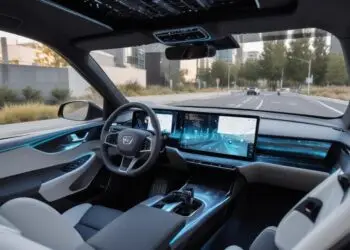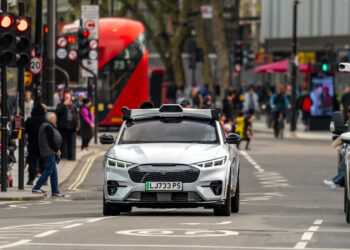In a groundbreaking move that underscores China’s pioneering role in the autonomous vehicle (AV) industry, the nation has granted its first approvals for public trials of advanced autonomous driving. This significant development is a testament to China’s relentless pursuit of becoming a global leader in autonomous driving technology.
Key Details of the Approval
The Ministry of Industry and Information Technology (MIIT) announced the approvals, allowing nine companies, including BYD and NIO, to test their automated driving technology on public roads.
These companies are not just any players in the industry but major contributors to the advancement of autonomous driving technology.
Chinese government-owned companies such as Chagan Automobile, SAIC, and GAC will also test their autonomous vehicles, demonstrating the nation’s commitment to this technology.
The trials are part of a broader initiative to accelerate the development and deployment of autonomous vehicles, aiming to drive new economic growth and technological advancement in China.
Significance for the Autonomous Vehicle Industry
China’s decision to approve public trials is expected to have several key implications for the AV industry:
1. Innovation and Development
China fosters an innovation environment by allowing companies to test their technologies in real-world conditions. This can lead to rapid advancements in autonomous driving capabilities and related technologies.
2. Economic Growth
The autonomous vehicle sector, with its potential to become a significant driver of economic growth, is set to flourish. With the introduction of public trials, China is poised to attract substantial investment in this field, creating new job opportunities and stimulating economic activity.
3. Global Competitiveness
China’s early approvals give it a competitive edge as countries race to dominate the autonomous vehicle market. Successful trials can position Chinese companies as leaders in the global autonomous driving landscape.
Companies Leading the Charge
BYD and NIO are leading this initiative, having received the green light to test their autonomous driving systems on public roads.
Both companies have been investing heavily in AV technology, and this approval allows them to demonstrate and refine their innovations in a real-world environment.
1. BYD
Known for its electric vehicles, BYD’s entry into autonomous driving represents a natural progression of its technological capabilities. The company aims to leverage its experience in EVs to develop robust and efficient autonomous systems.
2. NIO
As a pioneer in the EV market, NIO also focuses on autonomous driving. The company’s strategic investments and partnerships have positioned it well to take advantage of this new testing phase.
Impact on the Market and Consumers
The approval of public trials means consumers are one step closer to experiencing autonomous driving firsthand.
The trials will provide valuable data on safety, efficiency, and user experience and give consumers a glimpse into the future of transportation. This could change how people commute, travel, and interact with their vehicles, leading to a significant shift in consumer behavior.
This move signals a robust regulatory framework for the market that supports innovation and underscores the Chinese government’s unwavering commitment to ensuring the safety and reliability of autonomous driving.
It indicates the government’s determination to integrate autonomous driving into the broader transportation ecosystem.
By enabling companies like BYD and NIO to test their technologies on public roads, China is paving the way for significant advancements in the Autonomous Vehicle industry. This strategic move not only boosts the country’s technological prowess but also sets the stage for substantial economic growth and global competitiveness in the autonomous driving sector.










